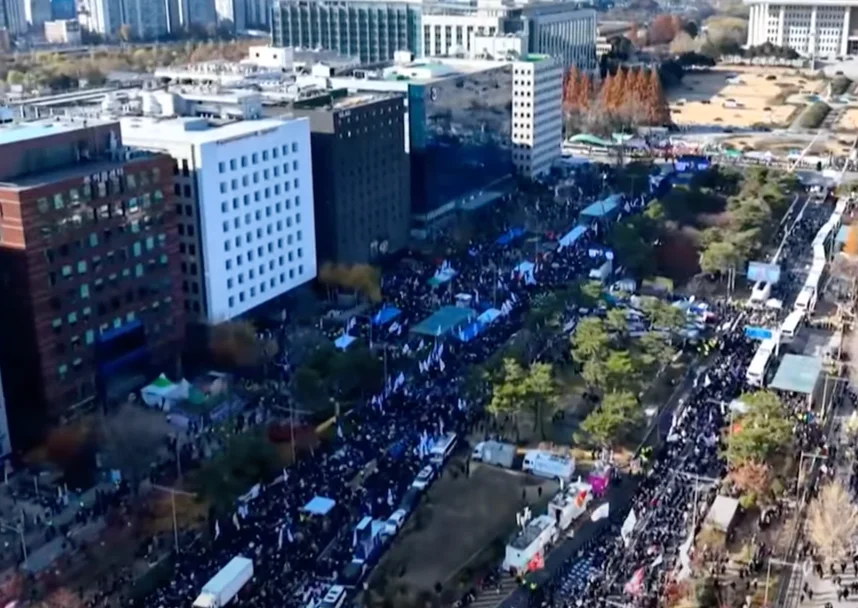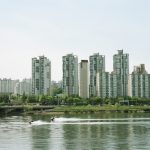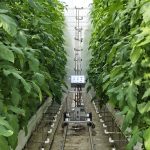South Korea is navigating an unprecedented political and constitutional crisis, sparked by President Yoon Suk-yeol’s controversial declaration of martial law and subsequent allegations of insurrection against top officials. Recent arrests of key figures and growing public protests underscore the deep divisions within the country. As opposition leaders push for impeachment and government figures debate leadership transitions, constitutional scholars warn that bypassing established legal processes risks undermining the nation’s democratic framework. The crisis has thrust South Korea into a moment of reckoning, with profound implications for its governance, economy, and global standing.
South Korea finds itself at the center of a political storm as the fallout from President Yoon Suk-yeol’s declaration of martial law shakes the nation’s constitutional foundations. The president justified the extraordinary measure by citing threats to national security, yet critics quickly denounced it as a power grab designed to silence dissent and consolidate control. The controversial decision has sparked protests, igniting a fierce public and political backlash.
Compounding the crisis are allegations of insurrection involving senior government officials, including Prime Minister Han Duck-soo. Investigations are underway to determine whether key figures in the administration conspired to bypass constitutional limits, raising concerns about the misuse of executive authority. These allegations have cast a shadow over the government, further fueling tensions within an already polarized political climate.
The situation escalated when Han Duck-soo, alongside ruling party leader Han Dong-hoon, suggested they could assume leadership roles to manage state affairs amidst the president’s alleged incapacitation. Their statements have been met with a wave of criticism from constitutional scholars and opposition leaders, who argue that such a move would be both illegal and undemocratic. Many see it as an affront to South Korea’s carefully balanced constitutional framework, where presidential powers cannot be transferred without formal impeachment proceedings.
This unfolding drama takes place in a deeply divided political landscape, with opposition parties intensifying calls for President Yoon’s impeachment. At the same time, public dissatisfaction with the government’s handling of the crisis continues to grow, leaving South Korea at a critical juncture in its democratic journey.
The political crisis engulfing South Korea has brought the nation’s constitutional framework under intense scrutiny. Central to the controversy is the question of whether key government figures, including Prime Minister Han Duck-soo and People Power Party leader Han Dong-hoon, have overstepped their authority by suggesting they could manage state affairs in President Yoon Suk-yeol’s stead without formal impeachment proceedings. Constitutional experts argue that such actions would undermine the very foundation of South Korea’s democratic system.
The South Korean Constitution provides a clear roadmap for addressing presidential incapacitation or misconduct. Article 65 outlines the impeachment process as the sole legitimate mechanism for removing a sitting president or limiting their powers. Until such proceedings are concluded, the president retains full authority, making any attempt to circumvent this process inherently unconstitutional. Han Duck-soo and Han Dong-hoon’s public remarks have therefore drawn sharp criticism for appearing to disregard this critical constitutional safeguard.
Further complicating matters are allegations of insurrection tied to the declaration of martial law and the potential complicity of senior officials in enabling actions deemed unconstitutional. If proven, these allegations could implicate key figures in undermining the constitutional order, rendering them unfit to assume any interim leadership role. Scholars warn that allowing individuals under investigation for insurrection to lead the nation, even temporarily, risks eroding public trust and setting a dangerous precedent.
The controversy also underscores the limits of the prime minister’s authority during a presidential crisis. While Article 71 of the Constitution allows the prime minister to act as a caretaker in specific scenarios—such as impeachment, death, or incapacitation—their powers remain strictly provisional and are not intended to facilitate significant policy shifts or governance changes. Legal experts emphasize that any deviation from these guidelines would not only violate constitutional norms but also disrupt the balance of power enshrined in South Korea’s democratic institutions.
At the heart of the debate is a broader concern about preserving the rule of law in a time of political uncertainty. Critics argue that the current crisis has exposed vulnerabilities in South Korea’s constitutional system, particularly when faced with attempts to exploit ambiguity for political gain. The challenge now lies in navigating this turbulent period while adhering to democratic principles and ensuring that the nation’s constitutional framework remains intact.
The ongoing political crisis in South Korea has sparked widespread concern among constitutional scholars, legal experts, and analysts, who caution against actions that could undermine democratic principles and the rule of law.
Legal experts argue that any attempt to bypass constitutional procedures for limiting or transferring presidential powers represents a significant threat to the country’s democratic framework. “The Constitution explicitly outlines the process for addressing presidential misconduct or incapacity, and impeachment is the sole legitimate mechanism for removing a sitting president or restricting their authority,” noted one constitutional scholar. Circumventing this process, they contend, could erode the legitimacy of governance and destabilize the political system.
Observers have also criticized recent statements suggesting that alternative figures could take on leadership roles without formal impeachment proceedings. Analysts point out that such remarks reflect a misunderstanding of constitutional boundaries and the roles of government officials within a democracy. “The constitutional system does not allow for informal arrangements or ad hoc leadership transfers, especially under circumstances that lack legal clarity,” explained one political scientist.
Concerns are further amplified by allegations of constitutional violations and insurrection against senior officials. Legal professionals stress that any individual under investigation for actions that may have compromised constitutional order should be excluded from considerations for interim leadership. “The credibility of the nation’s governance depends on the integrity of its leaders. Allowing individuals implicated in serious allegations to manage state affairs would set a dangerous precedent,” said a legal analyst.
Economists have highlighted the potential economic ramifications of the crisis. Political instability, they argue, creates uncertainty that can deter investment, destabilize markets, and undermine consumer confidence. “Resolving this crisis through clear and constitutional means is essential to preserving economic stability and maintaining international trust,” said one economic analyst.
Across various fields, experts agree on the importance of adhering to constitutional principles to navigate this turbulent period. They warn that failing to uphold the rule of law not only jeopardizes the immediate stability of the nation but could have lasting repercussions for its democratic institutions.
The political crisis unfolding in South Korea has far-reaching implications that extend beyond the immediate constitutional and legal disputes. Experts warn that the nation’s democratic institutions, economic stability, and international reputation are at stake as the crisis deepens.
Economically, the crisis has created an atmosphere of uncertainty that could have significant consequences for both domestic and international markets. South Korea’s economy, heavily reliant on global trade and investment, is particularly sensitive to political instability. Financial analysts note that prolonged uncertainty risks deterring foreign investment, destabilizing the Korean won, and reducing consumer confidence, which in turn could slow economic growth. Restoring political stability, they argue, is essential to maintaining investor trust and safeguarding the nation’s economic trajectory.
The international ramifications are also considerable. South Korea has long been seen as a model of democratic stability in East Asia, but the current turmoil risks damaging that reputation. Diplomatic analysts highlight the importance of a strong and stable South Korea in the region, especially amid rising tensions on the Korean Peninsula and broader geopolitical shifts. Any perception of democratic backsliding or internal discord could undermine the country’s ability to effectively engage in international diplomacy and maintain its strategic partnerships.
Beyond these immediate concerns, scholars point to the broader need for institutional reform to address vulnerabilities exposed by the crisis. The controversy has highlighted ambiguities in the Constitution regarding the management of presidential incapacity and the role of interim leadership during political emergencies. Legal and political experts have called for a reevaluation of these provisions to ensure greater clarity and prevent future crises from spiraling into constitutional deadlock.
The resolution of this crisis will be a defining moment for South Korea’s democracy. Whether through impeachment, judicial review, or political negotiation, the outcome will shape the nation’s trajectory and influence how its democratic institutions are perceived both domestically and internationally. The stakes could not be higher: South Korea’s ability to navigate this challenge within the bounds of its Constitution will serve as a crucial test of its commitment to the rule of law and democratic principles.



